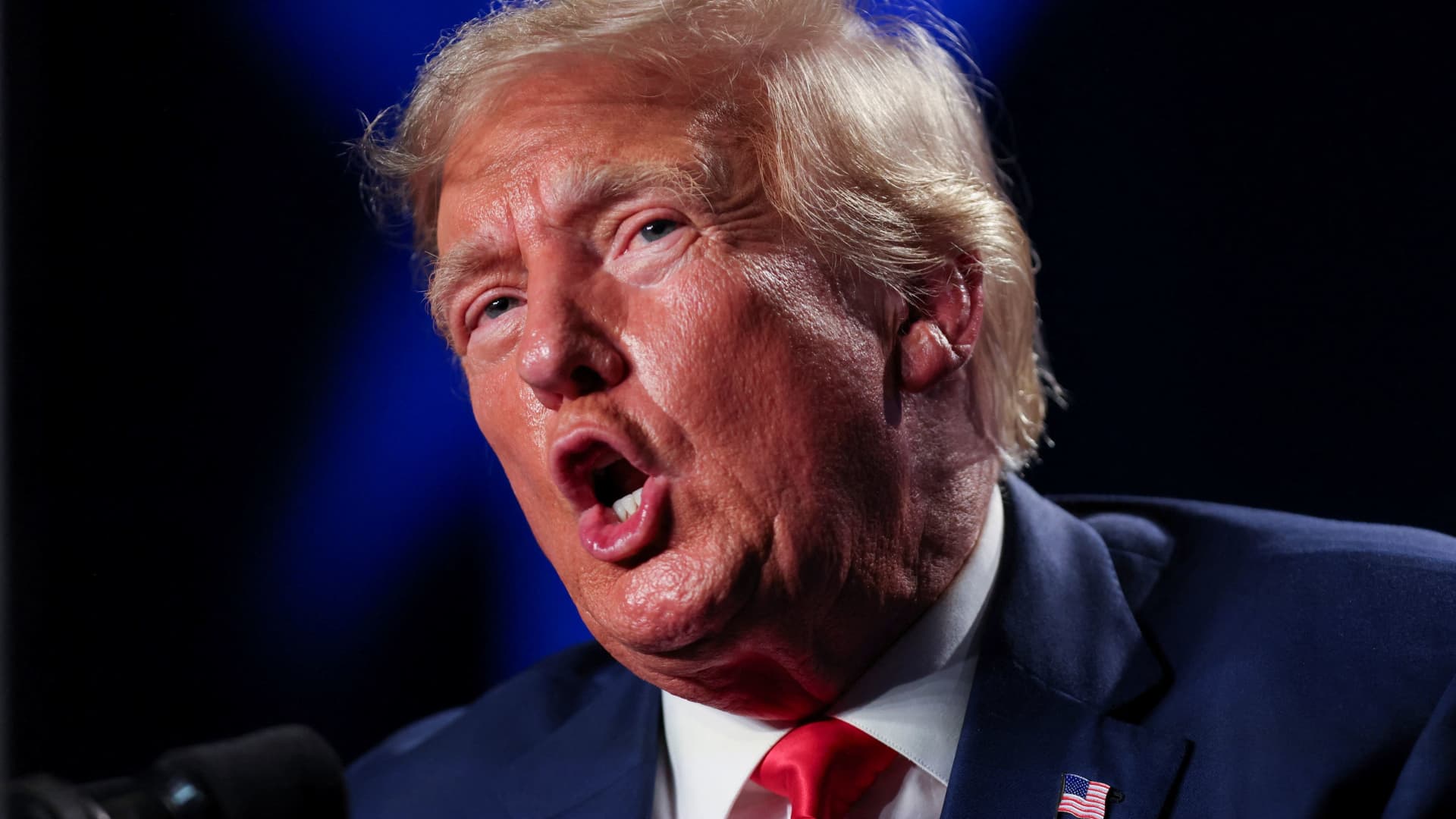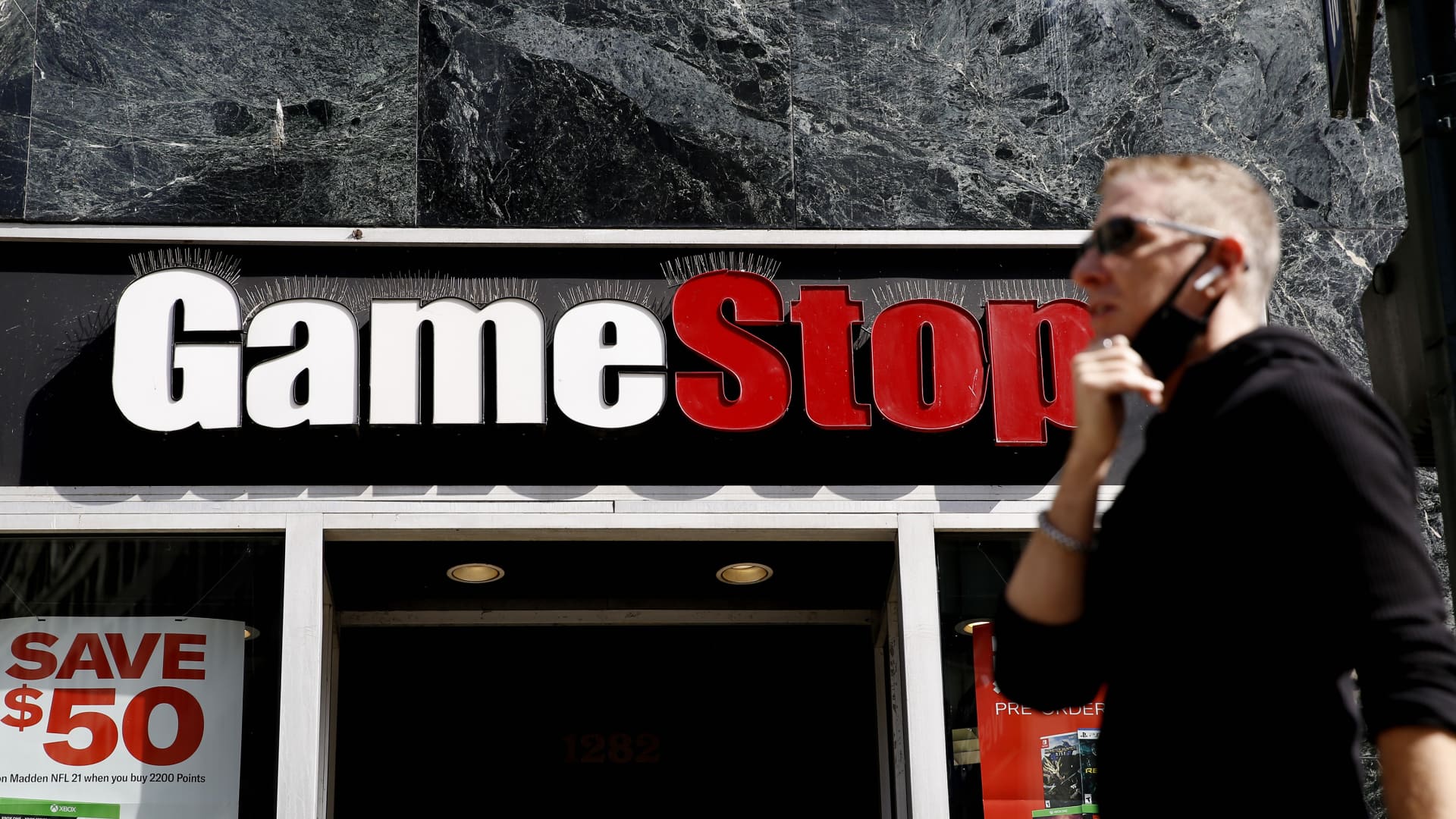US Markets
Thursday, August 17th, 2023 2:05 pm EDT

Former President Donald Trump has ramped up his rhetoric and vowed to keep speaking out in opposition to his criminal indictments as he campaigns for the 2024 Republican presidential nomination.
But his war of words in the court of public opinion could backfire on him in the actual courtrooms where judges will soon set his trial dates.
Trump has targeted judges, prosecutors and potential witnesses in posts railing against his four active criminal cases, prompting some legal experts to predict that a gag order may be in Trump’s future.
But even if that doesn’t happen, his aggressive criticism could incentivize judges to bring his cases to trial more quickly. That would be a blow to Trump, who has argued that his trials should be postponed until after the November 2024 presidential election.
“I don’t think any judge wants to get into a spitting contest with a defendant,” said Richard Serafini, a former senior trial attorney for the Department of Justice’s criminal division, in an interview Thursday.
“The best way for a judge to affect a silencing of pretrial comments is to make them irrelevant by setting a quick trial date,” Serafini said.
Judge Tanya Chutkan, who is presiding over the federal case accusing Trump of trying to subvert his 2020 election loss, recently suggested she would be willing to do just that.
“The more a party makes inflammatory statements about this case which could taint the jury pool or intimidate potential witnesses, the greater the urgency will be that we proceed to trial quickly to ensure a jury pool from which we can select an impartial jury,” Chutkan said last week.
“I caution all of you and your client, therefore, to take special care in your public statements about this case,” Chutkan added. “I will take whatever measures are necessary to safeguard the integrity of these proceedings.”
The judge’s warning came at the end of a hearing in U.S. District Court in Washington, D.C., that set the boundaries of an order limiting the evidence that can be publicly disclosed in the election interference case.
Trump, who asserts that the 91 total felony counts against him are part of a conspiracy to derail his 2024 campaign, claimed that Chutkan’s protective order was aimed to stifle his free speech. The protective order did not address Trump’s rhetoric.
At a recent campaign stop, he promised not to be silent. “I will talk about it, I will. They’re not taking away my First Amendment right,” Trump said.
And he appears committed to keeping that promise. Responding to his latest indictment in Georgia, Trump announced that he will personally unveil a “report” containing allegations of election fraud at a news conference next week.
ABC News reported earlier Thursday that Trump’s own legal advisers have urged him to cancel that event, telling him that it will “complicate” his legal problems. A Trump campaign spokeswoman, who is reported to have helped prepare the fraud report, did not respond to CNBC’s request for comment.
Special counsel Jack Smith has asked Chutkan to bring the D.C. case to trial on Jan. 2. Trump reacted harshly to that proposal, which would see him going to trial just before the first-in-the-nation Iowa caucuses.
“Only an out of touch lunatic would ask for such a date, ONE DAY into the New Year, and maximum Election Interference with IOWA!” Trump wrote on Truth Social. “Such a trial, which should never take place due to my First Amendment Rights, and massive BIDEN CORRUPTION, should only happen, if at all, AFTER THE ELECTION.”
Trump’s attorneys were expected to propose an alternative date by Thursday. Smith has suggested that a trial date will be set on Aug. 28, the day the parties are set to meet for a status conference.
Meanwhile, Atlanta-area District Attorney Fani Willis said this week that her case against Trump in Georgia should go to trial March 4.
Two of Trump’s criminal cases are already set to head to trial in the midst of the 2024 election cycle.
The federal trial over Trump’s alleged mishandling of classified documents is set to begin in May — two months after the scheduled start of his trial in New York on charges of falsifying business records related to a hush money payment to a porn star.
Trump has pleaded not guilty to the charges in his two federal cases and the New York criminal case. Willis has suggested that Trump and the 19 other defendants in her state-level election interference case should be arraigned early next month.
This post has been syndicated from a third-party source. View the original article here.



